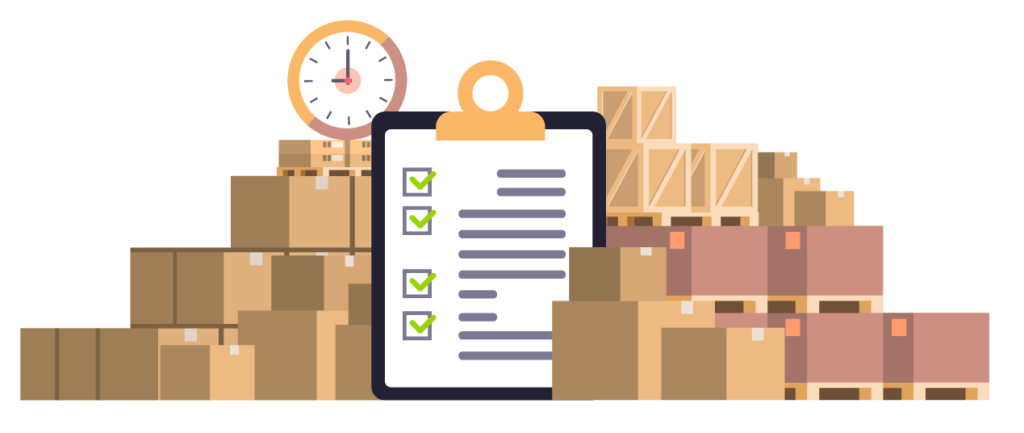Module 1 – So you want to change the food system
2. What you need to know before starting an agrifood business
Before starting an agrifood business, I wish I had known…
“How to actually run a business! I wanted to solve a problem and running a business was the result. I had no idea how to run a business, basic financial planning etc. In the end, it’s all about the right attitude, then you can deal with everything. But it would have been convenient if I had a business education, knew something about logistics, how to manage finances etc.”
-Chantal Engelen, Co-Founder at Kromkommer


“That people are very personal about their food and attach emotions to it. And in relation to agriculture, that you’re working with biological inputs, which is different than other processes as biology does its own thing.”
-David Rosenberg, Co-Founder & CEO at Aerofarms
“How long everything would take and also how much quicker it would go if I had brought experts on board earlier.”
-Solveiga Pakštaitė, Founder at Mimica Touch


“That retail is such a challenging environment”
-Willem Sodderland,
Founder & Seaweirdo at Seamore Foods
“How different running your own business is to running another business. As much stress as I thought there was when running other businesses, there was always a safety net. When you’re running your own, there is a completely different level of stress and dedication. And I used to think that I couldn’t switch off when I was running my own company but your inability to switch off when it’s your own is completely different. It’s all consuming, it affects your personal life. Your relationships with your friends, with your family. That said I don’t want to sound too negative. If my current business fell over, I would do it again in a heartbeat.”
-Steve Dring, CEO & Co-Founder at Growing Underground


“I wish we had understood the food safety and regulatory environment. We didn’t know anything about that at all. At the very beginning, we got advice from lawyers who said that our neighbour to neighbour model doesn’t fall within the realm of needing to be regulated and we didn’t revisit. And then we introduced a new model where volunteers pick up food from businesses and that definitely needs to be regulated. It’s really difficult to understand the system, what the actual rules are and what the whole ecosystem is.”
-Saasha Celestial-One, Co-Founder at Olio
“That the food industry is the oldest industry the world –we’ve always had to eat. Because of that, it’s going to be more multi-faceted than other sectors. It’s a high-volume business, and typically low margin industry compared to others. So, it’s important to know that price matters, and that speed matters and so really designing your products with those things in mind… and the fact that there are a lot of players that exist that have scale… as an entrepreneur, how are you going to overcome those scale challenges?”
-Marc Zornes, Co-Founder at Winnow Solutions


“I wish we’d had someone working with us who knew about food regulation and legislation – it’s such an overlooked area of the industry but it’s absolutely vital for a successful business.”
-Kate Hofman, CEO & Co-Founder GrowUp Urban Farms
“That the retail world is very intricate, complicated and forever changing! It’s not as simple as a handshake and doing business, it’s a much bigger beast.”
-Jim Cregan, Co-Founder at Jimmy’s Iced Coffee


“I think there are so many different types of food business – starting a social enterprise catering company versus a high-tech computer vision product are universes apart, and I feel fortunate to have had the experience to do both. Before starting ImpactVision, I wish I’d known how challenging it is to sell hardware to the food industry and how slim the profit margins are for most food companies. Even so, I wouldn’t rather work in any other sector than food and in the supply chain specifically – I think we are at a point of significant digitisation, which is really exciting.””
-Abi Ramanan, CEO and Co-Founder of ImpactVision
“That coming from a combined food and biotech perspective, I wish I had appreciated the fact that things always take longer than expected.”
-Arturo Elizondo, CEO & Co-Founder at Clara Foods


“I started when I was in college, I didn’t know anything… We knew we had a great idea and we focused on getting the product out and luckily found some early adopters who would forgive inconsistencies in the product. But for anyone looking to start and not doing it as a hobby – I would advise focusing on making the best tasting product because that’s what earns you the opportunity to do everything… like your mission.”
-Dan Kurzrock,
Co-Founder & Chief Grain Officer at Regrained
General start-up advice before getting started
About love: Running your own business is not an easy ride. Chances are it will be a lot harder (and more rewarding) than you ever could have imagined so make sure you’re working on something you love and care about. Instead of going after any old market opportunity, try to solve a problem close to your heart. If you’re only in it for possible financial gains, you will lose stamina and won’t persevere through all the setbacks you’re bound to encounter. However, two things are worth mentioning here:
- When you’re running your own startup, a great chunk of your time is spent on tasks such as sales, marketing, customer service, networking, strategy development, figuring out logistics, and administrative tasks like invoicing and payroll. So, even if your business is solving a problem you’re passionate about, be prepared to spend a lot of time on things you might not love so much. As a business owner, you MUST get comfortable being uncomfortable and be willing to embrace uncertainty.
- It’s important to love what you do, but don’t fall madly in love with your own idea. You and your business are better off if the object you love is the problem you’re trying to solve, not the idea. Get feedback early on and iterate on the idea. Listen to your customers and the feedback – don’t take things personally and be willing to learn.
Money, money, money
There is no such thing as an overnight success and getting steady income from your startup will take time. Having sure stream(s) of income will save you from many sleepless nights and unnecessary stress.
Once you have calculated the expenses related to your business idea, prepare to double, triple or quadruple the number. It’s likely you will face unexpected costs, so it’s good to be both financially and mentally prepared.
Besides making a budget for your business, spend time making your personal budget. If possible, you might want to hold on to your day job, do freelancing/consulting or get a part-time job before giving your all to the new business (this may be tricky, particularly for women who tend to bear the brunt of childcare and household management. See more on that below).
As a small business owner, it’s crucial to get to grips with managing cashflow. Track where your money is going and ensure you can justify every expense. The investor Mark Cuban says “never buy swag. A sure sign of failure for a startup is when someone sends me logo-embroidered polo shirts. If your people are at shows and in public, it’s okay to buy for your own employees, but if you really think people are going to wear your branded polo when they’re out and about, you are mistaken and have no idea how to spend your money.” That might sound a bit harsh but serves a good reminder to track your money and be savvy with your expenses – you will have a lot of them.
Work-life balance
You may have several priorities to manage, such as childcare or household management responsibilities, which make it difficult to bring in extra money or find enough time for everything you need to do when you start your own business. If you have a (romantic) partner, make sure you discuss how to find ways of making it work during the inevitable ups and downs before they happen.
Just as important as discussing money is looking at how you manage your time as a couple or family. If you are a woman, this is extra important:
- Women are five times more likely to spend 20 hours per week – that’s half a standard working week! – on household chores than men when both are in full-time employment
- Women are eight times more likely than men to look after sick children or manage their children’s schedules
- Globally, caregiving tends to be performed by women
These factors are not only costly in terms of time that could be spent earning money or on your business, but emotionally draining too. The value of these services and how to distribute them fairly should be part of any (particularly heterosexual) couple’s discussion on how to support a new business in a way that ensures the greatest chance of success in both personal and professional terms. There are many ways to approach this, but you may find this article helpful as a starting point.
If you do provide unpaid care to a family member such as an older person or someone with a disability, then do try and share this with other members of the family (challenging as this might be if there is an expectation for you to provide it) and investigate whether there are other resources available to you from elsewhere which may help. For instance, in the UK the charity Carers UK provides advice and resources, and other countries may have similar.
If you’re a single mother, the challenges are potentially greater – although don’t underestimate the skills you will already have built from managing childcare alone – the perfect multitasking practice! Try to think about ways that you can bring in your support network at critical times to relieve you of childcare duties, and at what point of profitability you will need to reach to justify more paid childcare.
Case study: entrepreneur.com

The below case study comes from entrepreneur.com – check out this article for 10 inspiring single mum entrepreneurs.
Angela Benton is the founder and CEO of NewME. Since launching in 2011, NewME has accelerated over 300 startups and helped them raise over $17 million in venture capital funding. Having her first child at 16 has never slowed Benton down as she has made a name for herself in the world of design and technology, appearing on Ebony magazine’s Power 150 in 2010, Goldman Sachs’ 100 Most Intriguing Entrepreneurs of 2013 and Marie Claire’s 50 Women Who Rule in 2013.
Her advice: “Being a single mom is NOT a setback. Nestled somewhere in the pages of a storybook is the idea that entrepreneurs “hustle,” “crush it,” “grind” and whatever other word you can come up with to describe working really, really hard on your business 100 percent of the time. Out here in the real world we know that’s not true.
Don’t get me wrong, entrepreneurship is a ton of work. However, don’t let the perception of this lifestyle count you out before you even count yourself in. Being a single mom comes with a wealth of skills that do well in entrepreneurship like multitasking, creativity, managing and/or operating on a budget, and problem-solving to say the least. I don’t know about you but I’d put my money on someone with these skills rather than a new college grad.”
Get out there
If you want to run your own successful business, be prepared to put yourself out there and get over the fear of public speaking. Attend events, use social media and offer your help to others (might sound counterproductive but often pays off and leaves a positive lasting impression).
You might also want to consider, for instance, starting a blog or creating video content. No matter how great your idea is, chances are it will not sell itself so make yourself and your idea known.
Develop your communication and public speaking skills, tell people about your idea and get comfortable selling. Also, aim to build relationships instead of just chasing transactions.
Building a network of likeminded supporters will also help buoy you up during tricky times and give you the confidence to keep on going. Look for entrepreneur support groups – whether that’s in your local area, or online bringing together a particular niche that you relate to. This is particularly important for entrepreneurs who are women and/or from an underrepresented background (BAME, LGBTQ, those with disabilities or any other marginalised group), as these groups face unique challenges.

“Everything is figureoutable.”
– Marie Forleo

